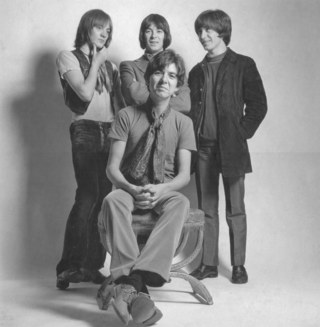
Ronald Frederick Lane was an English musician and songwriter who was the bassist and co-founder of the rock bands Small Faces (1965–69) and Faces (1969–73).

Status Quo are a British rock band. The group originated in London and was founded in 1962 by Francis Rossi and Alan Lancaster while they were still schoolboys. After a number of name and lineup changes, which included the introduction of John Coghlan in 1963 and Rick Parfitt in 1967, the band became The Status Quo in 1967 and Status Quo in 1969. As of 2022, the group have been active for 60 consecutive years.

The Housemartins were an English indie rock group formed in Hull who were active in the 1980s and charted three top-ten albums and six top-twenty singles in the UK. Many of their lyrics conveyed a mixture of socialist politics and Christianity, reflecting the beliefs of the band. The group's a cappella cover version of "Caravan of Love" was a UK number one single in December 1986.
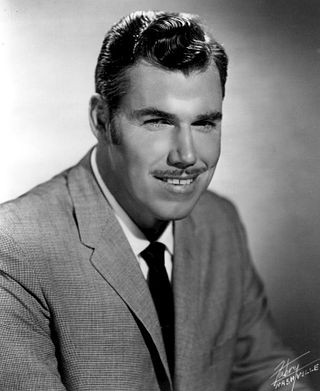
Ottis Dewey "Slim" Whitman Jr. was an American country music singer-songwriter and guitarist known for his yodeling abilities and his use of falsetto. Recorded figures show 70 million sales, during a career that spanned more than seven decades. His prolific output included more than 100 albums and around 500 recorded songs; these consisted of country music, contemporary gospel, Broadway show tunes, love songs, and standards. Soon after being signed, in the 1950s Whitman toured with Elvis Presley.

"Secret Love" is a song composed by Sammy Fain (music) and Paul Francis Webster (lyrics) for Calamity Jane, a 1953 musical film in which it was introduced by Doris Day in the title role. Ranked as a number 1 hit for Day on both the Billboard and Cash Box, the song also afforded Day a number 1 hit in the UK. "Secret Love" has subsequently been recorded by a wide range of artists, becoming a C&W hit firstly for Slim Whitman and later for Freddy Fender, with the song also becoming an R&B hit for Billy Stewart, whose version also reached the top 40 as did Freddy Fender's. In the UK, "Secret Love" would become the career record of Kathy Kirby via her 1963 remake of the song. The melody bears a slight resemblance to the opening theme of Schubert's A-major piano sonata, D.664.

"Cara Mia" is a popular song published in 1954 that became a UK number 1, and US number 10 hit and Gold record for English singer David Whitfield in 1954, and a number 4 hit for the American rock group Jay and the Americans in 1965. The title means "my beloved" in Italian.
"Don't Let the Stars Get in Your Eyes" is a country song about a man away from home who is worried that his paramour may unwittingly stray from their relationship. It was written by Winston L. Moore and published in 1952. The song has been recorded in many different styles by many performers, with Perry Como's version hitting number 1 in both the US and UK.

John Richard Lomax was an English guitarist and singer-songwriter. He is best known for his association with George Harrison, who produced Lomax's recordings for the Beatles' Apple record label in the late 1960s.

The Rose is the soundtrack to the feature film of the same name starring Bette Midler, released in 1979.

Rockin' All Over the World is the tenth studio album by British band Status Quo. It is their first to be produced by Pip Williams and the first to feature Andy Bown as a regular contributor to the band; he would later join the band officially in 1982. Released in November 1977, it reached #5 in the UK.
"I Remember You" is a popular song, published in 1941. The music was written by Victor Schertzinger, with lyrics by Johnny Mercer. The song was originally recorded by Jimmy Dorsey in 1941. It has since been covered most notably by Frank Ifield, Glen Campbell and Björk.

"Rockin' Robin" is a song written by Leon René under the pseudonym Jimmie Thomas, and recorded by American singer Bobby Day in 1958. It was Day's biggest hit single, becoming a number two hit on the Billboard Hot 100, and spent one week at the top of the R&B sales chart. Michael Jackson recorded his own version of the song in 1972, which also achieved success.
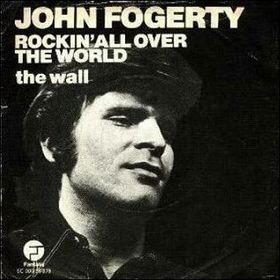
"Rockin' All Over the World" is a rock song written by John Fogerty, formerly of Creedence Clearwater Revival. It made its debut on Fogerty's second solo album in 1975. It was also released as a single, spending six weeks in the US top 40, peaking at #27.
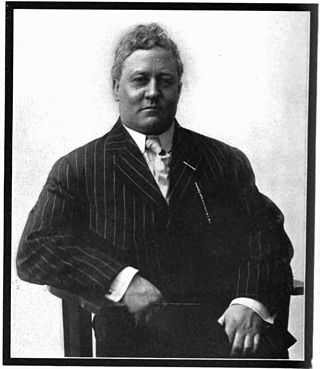
"Rose Marie" is a popular song from the musical or operetta of the same name. The music was written by Rudolf Friml and Herbert Stothart, the lyrics by Otto Harbach and Oscar Hammerstein II, In the original Broadway production in 1924, the song was performed by Dennis King and Arthur Deagon, as the characters Jim Kenyon and Sergeant Malone.
"I'll Be Home" is a 1955 song that was written by Ferdinand Washington and songwriter, Stan Lewis.

"Indian Love Call" is a popular song from Rose-Marie, a 1924 operetta-style Broadway musical with music by Rudolf Friml and Herbert Stothart, and book and lyrics by Otto Harbach and Oscar Hammerstein II. Originally written for Mary Ellis, the song achieved continued popularity under other artists and has been called Friml's best-remembered work.

"Say You'll Stay Until Tomorrow" is a 1977 single written by Roger Greenaway & Barry Mason and performed by Tom Jones.

Red River Valley is an album by American recording artist Slim Whitman, released on 17 December 1976. It was his second and final number-one album in the UK. It spent four weeks at the top of the chart in 1977; it kept David Bowie's Low off the top spot at the end of January 1977. The album was arranged by Whitman and Pete Moore. The cover photography was by Derek Richards.
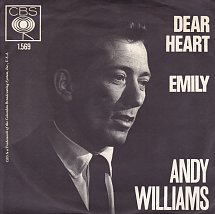
"Dear Heart" is a song written by Henry Mancini, Ray Evans, and Jay Livingston and performed by Andy Williams. It appears on the 1965 Andy Williams album, Andy Williams' Dear Heart. The song was the theme to the 1964 movie Dear Heart. It was nominated for the Academy Award for Best Original Song and also nominated for best song at the 22nd Golden Globe Awards.
Slim Whitman was an American singer-songwriter and guitarist. His first single, complete with trademark yodel "I'm Casting My Lasso Towards the Sky", appeared in 1949, and his first album, Slim Whitman Sings and Yodels, in 1954.















